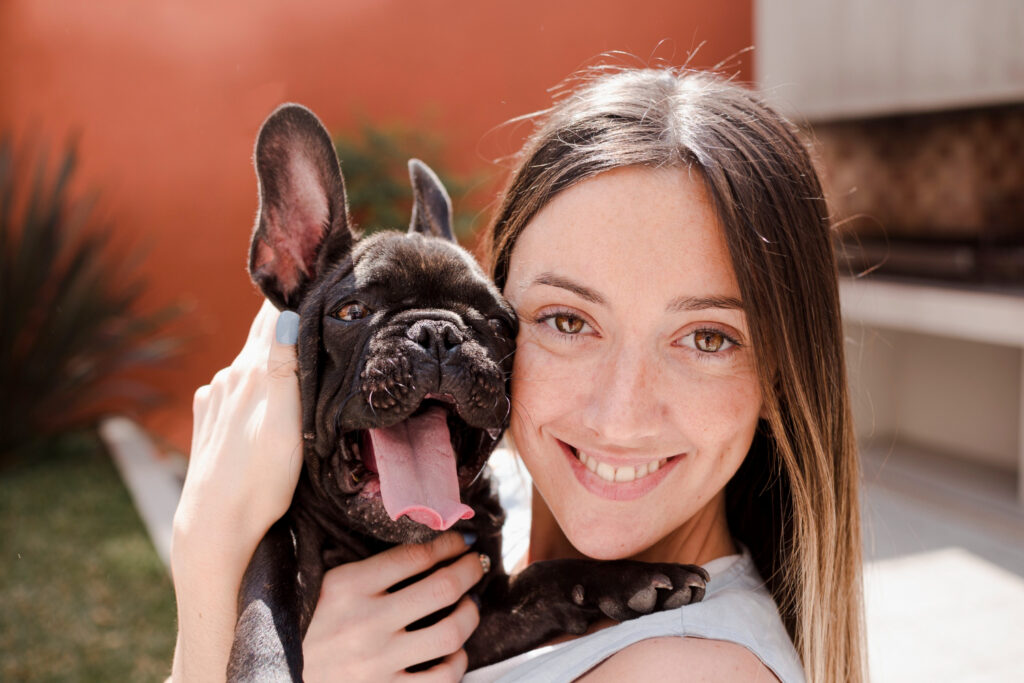French Bulldogs are undeniably one of the most popular companion dog breeds today, known for their charming personalities, adorable looks, and affectionate nature. Their compact size, large ears, and distinctive features make them stand out, but it’s their sweet disposition that wins the hearts of their owners. Whether you already own a French Bulldog or are considering bringing one into your home, understanding how to care for them is essential for ensuring a long, healthy, and happy life. This detailed guide explores everything you need to know about the French Bulldog breed, including their size, temperament, care requirements, health considerations, and much more.
French Bulldog Overview: A Snapshot of the Breed
Before we dive into the specifics of caring for a French Bulldog, it’s important to understand their general characteristics. These dogs are part of the “toy” group but have a muscular build and sturdy body. Known for their affectionate and playful nature, French Bulldogs are also highly social animals, often bonding deeply with their owners.
- Size: Small to medium-sized, typically weighing between 16 to 28 pounds.
- Height: Ranges from 11 to 12 inches at the shoulder.
- Lifespan: Around 10-12 years, though with proper care, they can live longer.
- Coat: Short, smooth, and easy to groom.
Understanding the French Bulldog’s Temperament
The French Bulldog is an affectionate, loyal, and charming breed. They’re known for their friendly demeanor and love of companionship, making them ideal pets for families, singles, and even senior citizens.
1. Social and Affectionate Nature
French Bulldogs are naturally affectionate. They crave human attention and enjoy being around their family members. Unlike some breeds that can be independent, French Bulldogs thrive on companionship and will happily follow you from room to room. Their playful nature makes them good with children and adults alike.
They may form a particularly strong bond with one person in the household and often seek out their company more than others. If you’re looking for a loyal companion, the French Bulldog is a breed that will never leave your side.
2. Playful, But Not Hyperactive
Though the French Bulldog is playful, they are not as energetic as some other small breeds. They enjoy games like fetch, tug-of-war, or just a leisurely walk, but they’re not the type to engage in high-energy play for hours on end. This makes them perfect for apartment living or homes without a large yard, as long as they get their daily dose of exercise.
3. Stubborn Yet Intelligent
French Bulldogs are intelligent but can be a bit stubborn, making them a challenge to train at times. They have an independent streak, and while they can learn commands, they may not always be motivated to do so. Positive reinforcement techniques—using treats, praise, and affection—work best with this breed. Avoid harsh training methods, as they can be counterproductive.
4. Good with Other Pets and Kids
In general, French Bulldogs are friendly with other dogs and pets, especially if socialized early on. They tend to get along well with cats, making them suitable for multi-pet households. When it comes to children, French Bulldogs are usually gentle and patient, though supervision is always recommended, particularly with younger children.
French Bulldog Health Considerations
While French Bulldogs are relatively healthy dogs, they do have some specific health concerns that potential owners should be aware of. Understanding these potential issues will allow you to provide the best possible care and keep your dog healthy for many years.

1. Brachycephalic Syndrome
One of the most common health issues in French Bulldogs is brachycephalic syndrome. Due to their flat faces, French Bulldogs often have breathing difficulties. They can suffer from obstructed airways, which can cause snoring, labored breathing, and intolerance to heat.
Owners of French Bulldogs should be mindful of the breed’s breathing problems. Here are a few tips:
- Avoid extreme heat: French Bulldogs are particularly susceptible to heatstroke. Always ensure they have access to cool, shaded areas, especially during summer months.
- Limit strenuous exercise: While regular exercise is important, avoid heavy physical activity, especially in hot weather, as it can cause breathing difficulties.
- Vet checkups: Regular vet visits are essential to monitor their breathing and ensure they’re in good health.
2. Hip Dysplasia
Hip dysplasia is another health concern in French Bulldogs. It’s a hereditary condition where the hip joint doesn’t develop properly, leading to pain and arthritis. If your French Bulldog shows signs of limping or has difficulty getting up, a vet visit is necessary. Early detection can help manage the condition through weight management, joint supplements, and sometimes surgical intervention.
3. Intervertebral Disc Disease (IVDD)
As a breed with a compact body and short legs, French Bulldogs are prone to spinal issues, including intervertebral disc disease (IVDD). This condition can lead to disc degeneration in the spine, which can cause pain, loss of mobility, or paralysis in severe cases. To help prevent IVDD:
- Avoid jumping from heights or engaging in rough play.
- Keep your dog at a healthy weight to reduce strain on their back.
4. Allergies
Allergies—whether food or environmental—are common in French Bulldogs. Food allergies can manifest in skin irritations, digestive issues, or ear infections, while environmental allergies may trigger sneezing, itching, or watery eyes.
If you suspect your French Bulldog has allergies, your vet can perform tests to identify the allergen and help you manage the condition.
Grooming and General Care for French Bulldogs
Though the French Bulldog has a short, smooth coat, they still require regular grooming to maintain their health and appearance. Here’s how to keep your French Bulldog clean and well-groomed:
1. Coat Care
French Bulldogs are relatively low-maintenance when it comes to grooming because of their short coat. Brushing them once a week will help remove loose hairs and reduce shedding. A rubber curry brush works well to massage the skin and keep their coat shiny.
2. Bathing
Unlike some breeds, French Bulldogs don’t need frequent baths. Bathing them every 4 to 6 weeks or as needed will help keep them clean without drying out their skin. Make sure to use a dog-friendly shampoo, as human products may irritate their skin.
3. Ear Cleaning
Due to their large, upright ears, French Bulldogs are prone to ear infections. Regular ear cleaning is necessary to prevent wax buildup or infections. Use a damp cloth or a vet-approved ear cleaner to wipe down the inside of their ears. Never insert anything into the ear canal.
4. Nail Trimming
Like all dogs, French Bulldogs require regular nail trimming. Trim their nails every 3-4 weeks, or as needed, to prevent discomfort or injury. If you’re unsure how to trim their nails, ask your vet or a professional groomer for advice.
Feeding Your French Bulldog
Feeding your French Bulldog a balanced, nutritious diet is essential for their health. Here are some guidelines to keep in mind:
- Quality Dog Food: Choose a high-quality dog food that is formulated for small breeds and meets the nutritional needs of a French Bulldog. Look for options with high protein, healthy fats, and digestible carbohydrates.
- Portion Control: French Bulldogs are prone to obesity, so portion control is crucial. Measure their food and avoid giving them table scraps.
- Feeding Schedule: Split their daily food intake into two or three meals to avoid bloating, as French Bulldogs are susceptible to digestive issues.
Exercise and Playtime Needs
Although French Bulldogs are not as high-energy as some other small breeds, they still need regular exercise to stay fit and healthy. Short walks, playtime in the yard, and interactive toys are great for keeping your dog entertained. However, it’s important to monitor their activity levels due to their respiratory issues.
1. Short Walks and Playtime
Take your French Bulldog on short walks (15-30 minutes) daily. They enjoy sniffing around, but avoid prolonged walks in hot weather.
2. Interactive Toys
Provide mental stimulation with toys that require them to solve puzzles or engage with you. This will help burn off any excess energy and keep their mind sharp.
Conclusion: Why the French Bulldog is an Ideal Pet
In conclusion, the French Bulldog is a small dog with a big personality. Their affectionate nature, playful spirit, and compact size make them an ideal choice for many types of pet owners. By taking care of their specific health needs, grooming regularly, providing a balanced diet, and offering consistent exercise, you can ensure that your French Bulldog will lead a happy, healthy life. Their loyal companionship and endearing nature make them one of the best-loved dog breeds around.
Whether you’re a first-time dog owner or an experienced pet parent, caring for a French Bulldog can be incredibly rewarding. With proper care and attention, these wonderful dogs will bring years of joy and love into your life.







